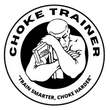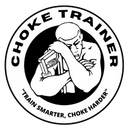The Power of Leverage in Jiu-Jitsu: Technique Over Strength
In Brazilian Jiu-Jitsu (BJJ), one of the most fundamental principles that separates it from other martial arts is leverage. Unlike brute strength or speed, leverage allows a smaller, weaker person to control and even submit a larger, stronger opponent. This concept is what makes BJJ so effective for self-defense, sport grappling, and even mixed martial arts (MMA).
Whether you’re a beginner or a seasoned practitioner, understanding and applying leverage correctly can elevate your game to the next level. Let’s break down what leverage means in Jiu-Jitsu and how you can use it to your advantage.
What Is Leverage in Jiu-Jitsu?
Leverage in Jiu-Jitsu refers to using positioning, weight distribution, and angles to maximize force while minimizing effort. It allows a practitioner to generate power efficiently, making techniques work regardless of size or strength differences.
The essence of leverage is mechanical advantage—using a small force applied in the right way to produce a much greater effect. This is the same principle that makes tools like crowbars, pulleys, and wrenches effective in the physical world. In Jiu-Jitsu, your body becomes the tool.
**Key Principles of Leverage

